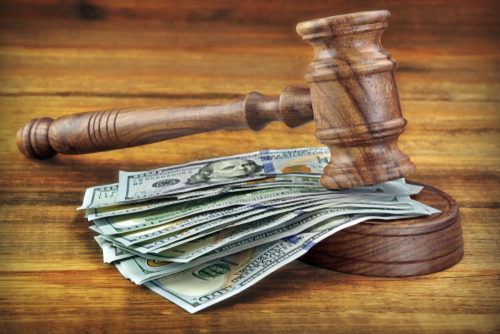Court tosses $177K sanction against prominent lawyer accused of using poll to influence opinion

Image from Shutterstock.com.
The Texas Supreme Court has vacated a $177,000 sanction against a prominent lawyer accused of commissioning a telephone survey before a trial that was intended to influence potential jurors rather than gauge community attitudes.
The state supreme court said in an April 24 opinion that the sanction should be vacated because there is no evidence that Dallas lawyer Bill Brewer acted in a bad-faith effort to influence opinion.
“Though the survey Brewer commissioned is not without its faults, the evidence shows he undertook reasonable efforts to secure a third-party industry professional to create a relatively balanced public opinion survey for random administration,” the opinion says. “The record bears no direct, or even circumstantial, evidence of bad faith.”
The trial judge, Ruben Reyes, had ordered Brewer to pay as a sanction $133,415 in attorney fees and expenses, plus $43,590 in contingent fees and expenses.
Brewer commissioned the poll of 300 people chosen from a 20,000-person database while representing the Titeflex Corp., a maker of pipes. The suit, which claimed that Titeflex’s poor design led to a fatal gas explosion, settled on the eve of the trial. The company had claimed that the explosion was caused by faulty pipe installation.
The survey was taken in 2014 in Lubbock County, where the suit was filed, weeks before the scheduled trial. The family members of three deposed witnesses in the case had answered survey calls, but none completed the survey.
The director of community and media relations at Brewer’s firm, then known as Bickel & Brewer, spearheaded the survey project. He contributed to the survey contents, but his edits added questions unfavorable to Titeflex’s position to help add balance.
“The survey reflects reasonable efforts to achieve a reasonable degree of balance,” the court said. “Not perfect, but reasonable.”
Brewer didn’t disobey any court order or disciplinary rule, the court said. “At worst, Brewer was lax in failing to ensure the survey was not totally random by securing the exclusion of case-related individuals from the survey database,” the court said.
The court said surveys of communities that include potential jurors have been conducted for almost 80 years. They have been used in such high-profile cases as that of the Boston bomber, the Oklahoma City bomber and Ted Bundy.
A few federal courts in Texas have standing orders that regulate such polls when taken in the county of the suit. The orders require pretrial notice of plans to conduct a study, disclosure of methodology, bans of polls close to a trial, and submission to the court of each participant’s name and address. No such order was in place in the state court where the Titeflex case was pending.
A concurring judge disagreed with the majority’s decision to apply a bad-faith requirement to sanctions based on a court’s inherent authority. The requirement “handcuffs our state’s trial courts,” the judge said.
The concurring judge also questioned how the majority could find that there was no bad faith when a trial judge had made specific factual findings in support of the sanction.
Law360 and Courthouse News Service have coverage of the decision, Brewer v. Lennox Hearth Products.
Michael Collins, a partner at Brewer’s firm, Brewer, Attorneys & Counselors, commented on the decision in a press release.
“We appreciate the attention paid by the court on this important issue. The opinion validates what we have believed all along—that Bill and our law firm acted ethically at all times,” Collins said. “This outcome underscores our commitment to the highest of ethical standards.”
A lawyer for the plaintiffs, Ted Lyon Jr. of Ted B. Lyon & Associates, told Law360 and Courthouse News Service that he thought the decision was political.
“There are nine judges on the supreme court, and they are all Republicans,” Lyon told Law360. “Bill Brewer is the chief legal counsel for the NRA, and the NRA is extremely influential in Republican Party politics.”
Lyon said he thought the decision will lead to more push polling in Texas. He hopes lawmakers will “rein this in” by banning push pulling or by allowing sanctions without a showing of bad faith.



